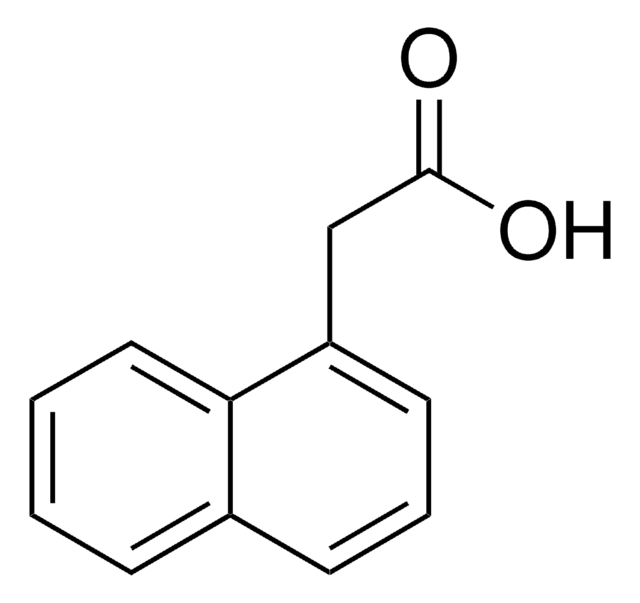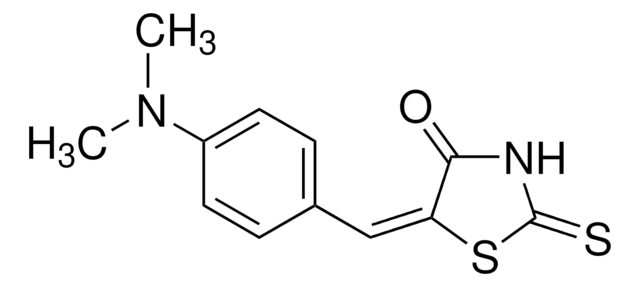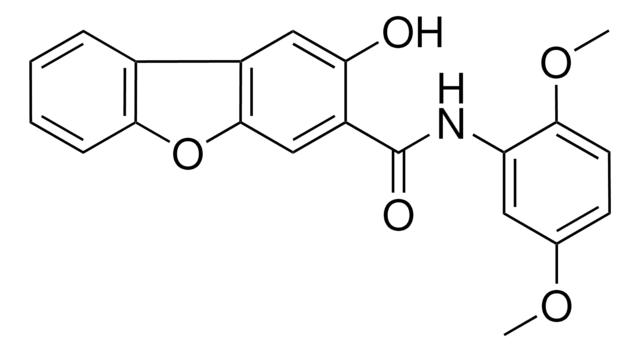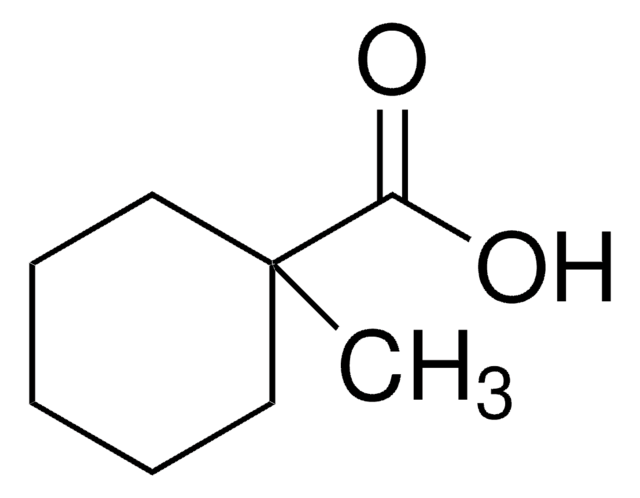70340
Naphthenic acid
technical
Sinonimo/i:
Acidol (petroleum by-product), Sunaptic B
Autenticatiper visualizzare i prezzi riservati alla tua organizzazione & contrattuali
About This Item
Prodotti consigliati
Grado
technical
Livello qualitativo
Stato
liquid
Indice di acido
~215
Densità
0.92 g/mL at 20 °C (lit.)
InChI
1S/C10H18O2/c1-2-8-3-4-9(7-8)5-6-10(11)12/h8-9H,2-7H2,1H3,(H,11,12)
WVRFSLWCFASCIS-UHFFFAOYSA-N
Applicazioni
Naphthenic acid is commonly used in the synthesis of useful metal naphthenates such as copper naphthenate, a wood preservative; titanium naphthenate, a precursor for the preparation of titanium oxide thin films and a rare earth naphthenate, a lubricant oil additive. It can also be in the synthesis of biodegradable naphthenic acid ionic liquids.
Risultati analitici
petroleum product, techn. mixture of alkylated cyclopentane carboxic acids
Avvertenze
Warning
Indicazioni di pericolo
Consigli di prudenza
Classi di pericolo
Eye Irrit. 2 - Skin Irrit. 2 - Skin Sens. 1
Codice della classe di stoccaggio
10 - Combustible liquids
Classe di pericolosità dell'acqua (WGK)
WGK 1
Punto d’infiammabilità (°F)
213.8 °F - closed cup
Punto d’infiammabilità (°C)
101 °C - closed cup
Dispositivi di protezione individuale
Eyeshields, Gloves, type ABEK (EN14387) respirator filter
Scegli una delle versioni più recenti:
Possiedi già questo prodotto?
I documenti relativi ai prodotti acquistati recentemente sono disponibili nell’Archivio dei documenti.
I clienti hanno visto anche
David Jones et al.
Journal of chromatography. A, 1247, 171-175 (2012-06-19)
The naphthenic acids of oil sands process-affected water (OSPW) are said to be important toxicants. The major acids are stated to have alicyclic structures and recently, numerous of these have been identified, but some evidence suggests 'aromatic' acids are also
Steven D Melvin et al.
Environmental pollution (Barking, Essex : 1987), 167, 178-183 (2012-05-12)
Naphthenic acids (NA) have been identified as harmful environmental contaminants that influence survival, growth and development of wildlife. Amphibian larvae are particularly susceptible to waterborne contaminants, but little information exists regarding exposure of amphibian embryos or tadpoles to NA. Our
Lan Liu et al.
Chemistry (Weinheim an der Bergstrasse, Germany), 18(38), 12059-12067 (2012-08-16)
The interactions between 3-O-methyl-mannose polysaccharides (MMPs), extracted from Mycobacterium smegmatis (consisting of a mixture of MMP-10, -11, -12 and -13) or obtained by chemical synthesis (MMP-5(s), -8(s), -11(s) and -14(s)), and linear saturated and unsaturated fatty acids (FAs), and a
Atefeh Afzal et al.
Environmental science & technology, 46(19), 10727-10734 (2012-09-01)
The large volume of oil sands process-affected water (OSPW) produced by the oil sands industry in Northern Alberta, Canada, is an environmental concern. The toxicity of OSPW has been attributed to a complex mixture of naturally occurring acids, including naphthenic
Effects of naphthenic acid exposure on development and liver metabolic processes in anuran tadpoles.
Steven D Melvin et al.
Environmental pollution (Barking, Essex : 1987), 177, 22-27 (2013-03-08)
Naphthenic acids (NA) are used in a variety of commercial and industrial applications, and are primary toxic components of oil sands wastewater. We investigated developmental and metabolic responses of tadpoles exposed to sub-lethal concentrations of a commercial NA blend throughout
Il team dei nostri ricercatori vanta grande esperienza in tutte le aree della ricerca quali Life Science, scienza dei materiali, sintesi chimica, cromatografia, discipline analitiche, ecc..
Contatta l'Assistenza Tecnica.










